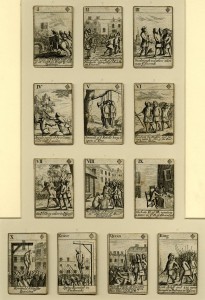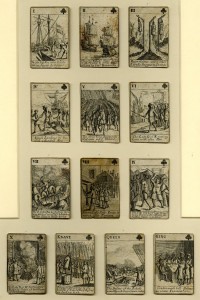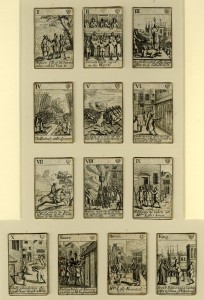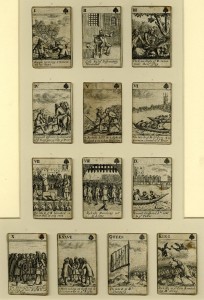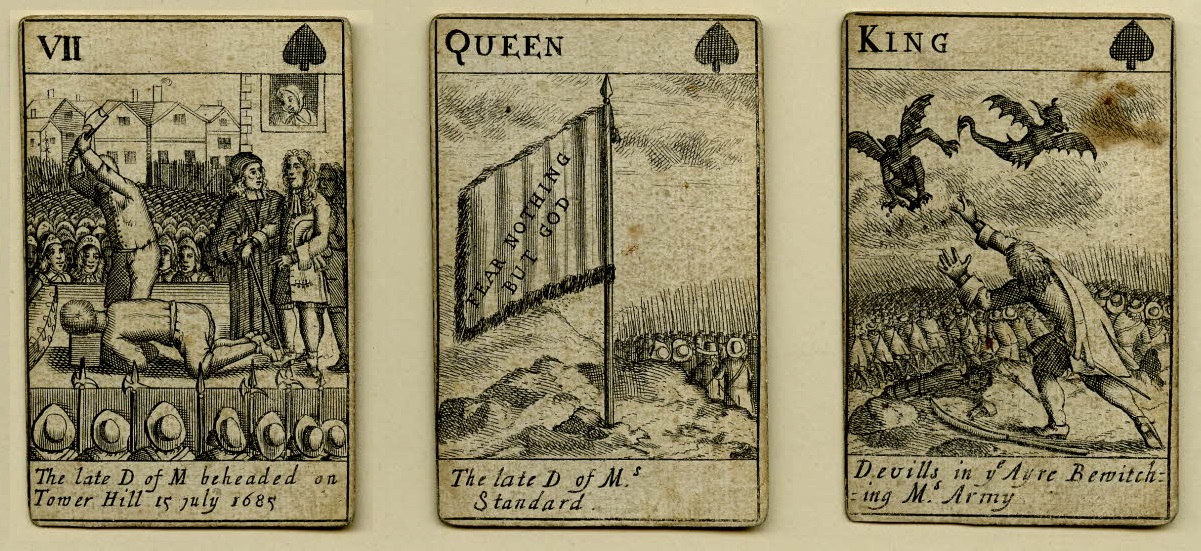
Seven, Queen, and King of Spades, Monmouth Rebellion Playing Cards. © Trustees of the British Museum.
In the 1670s and 1680s, playing cards with commemorative or topical designs became extremely popular. Several packs were designed around the Popish Plot and the Exclusion Crisis. This pack were probably issued late in 1685 to commemorate the failed coup staged by James Scott, Duke of Monmouth (1649-1685) earlier that year. The seven of spades, which depicts Monmouth’s execution on 15 July 1685, is shown above. The rest of the pack is shown in thumbnails below. Click on them to enlarge.
Although most packs of playing cards were biased in favour of the Stuart regime, this particular pack is odd. Monmouth’s execution is not portrayed on a significant card, despite being a key triumph for James II (1633-1701). By contrast, the king of diamonds depicts the capture of John Ayloffe (c.1645-1685), a prominent Monmouth conspirator and renowned Whig satirist; the king of hearts shows the Whig Archibald Campbell, Earl of Argyll (1629-1685), delivering a ‘canting paper’; and the king of spades, one of the most important cards in the pack, shows ‘devils in the air bewitching Monmouth’s army’. This is in stark contrast to the queen of spades, which shows Monmouth’s standard with the motto ‘fear nothing but God’. While Monmouth and the rebels appear on most of the cards, James II appears on none.
The effect of the cards is to celebrate and memorialize Monmouth. They are clearly designed from a Whig perspective. The king of spades is particularly interesting because this card usually portrayed the sovereign. Here it shows two devils taunting Monmouth. Given that Whig propaganda often portrayed James as a popish devil, it is seems likely that this card was intended to recall such images.
